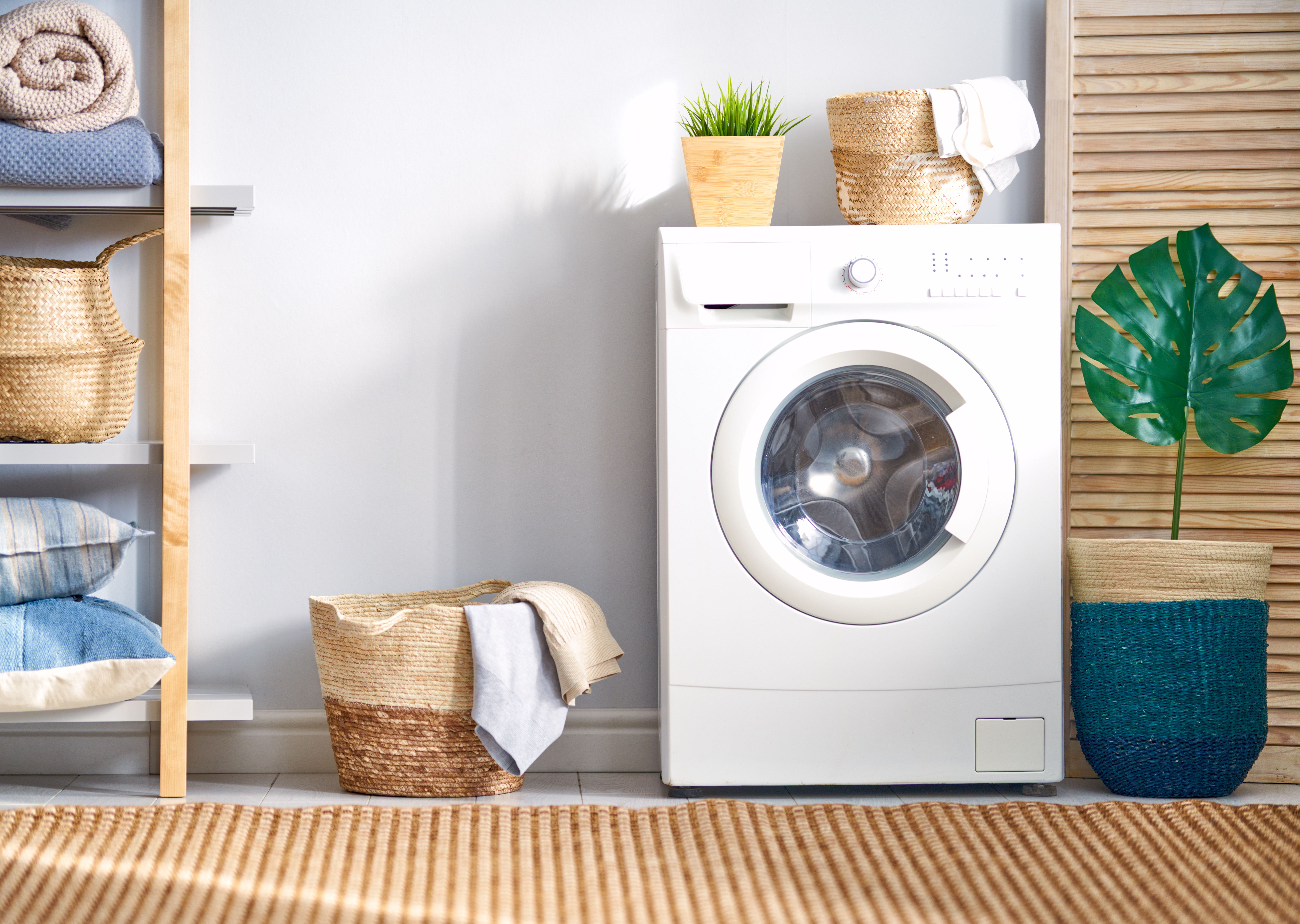VMX: Laundry, loyalty, a look at the future?
You have problems. And veterinary conference exhibit halls are full of people who want to solve them for you. Have you seen these ones yet, tackling dirty towels, jaded clients and the future of veterinary imaging?
Konstantin Yuganov / stock.adobe.com

Veterinary conference exhibit halls make strange bedfellows-who put the hand lotion next to the surgical laser?-so why not do the same thing right here with three new (or new to us) products and services we saw on the VMX show floor last week in Orlando, Florida?
Solving the laundry quandary
If you buy a consumer-grade washer and dryer from Home Depot or Lowe's, your fraying towels and heavily soiled fabrics and round-the-clock loads will kill those machines. The good news? They're relatively cheap. Place and replace and replace …
Judges who joined us recently to look at entries in the 2019 dvm360 Hospital Design Competition (details coming soon) were unanimous in their feeling that laundry is a pain and there's no easy solution to the problem.
The booth representative with Continental at VMX said she understands the pain, and she is surprised how few of those work to equip and build veterinary hospitals don't know about Continental's choices.
Choice 1? A commercial-grade LG washer unit that will get the job done, lasting three years or so in the $3,000 range-good. Choice 2? A $6,000 commercial-grade washer unit with a five-year warranty and expected to last 15 to 20 years, even with brutal veterinary practice conditions-better. She also pitched that this monster is “soft-mounted,” so you don't need a special block of concrete to hold it during its fairly wicked cleaning vibrations. There's no such thing as a guarantee in life, but it's heartening to us at dvm360 that maybe there is a better way to run the laundry in back of house.
We haven't talked to veterinary team members using these units yet, but it looks like the Continental rep had a list of case studies and practice owners you could contact to check before you buy.
It markets, it reminds, it slices, it dices … wait, not the last two

One of the newest additions to the Henry Schein Animal Health booth (soon to be Covetrus, mixed in with Vets First Choice, as new combo in veterinary medicine) is the smartphone “customer engagement platform” for pet owners, Petlocity.
Fresh from a successful six-month test in veterinary practices, where the Petlocity representative said they learned a lot, is an app that gamifies pet care with a loyalty program that lets pet owner rack up points and get a virtual pat on the back for doing right by their pet while you market medically necessary services your practice is looking to promote. (Double points to clients for dentals this month? You got it!) The app's message center manages appointments, reminders, refill requests and other notifications and rewards pet owners based on purchases and compliance with your recommendations.
The Petlocity rep's official line is that veterinary clients using Petlocity spent twice as much, visited twice as often and returned to redeem those rewards within 60 days. Yes, this is another app in an increasingly crowded field of apps tied to veterinary practices that do a lot of different things. But this one looks pretty snazzy at a cost of $250/month to use it for your hospital. Hit up your Henry Schein, err, Covetrus rep for a test drive.
Is the CT market heating up?
We're gonna plead our ignorance right now: Most of you have digital radiography, and those who don't will get it soon. (I mean, film, really?) But, to be honest, we don't know how hot the market is in veterinary practices for a CT scanner. We're looking to find out, but we can say that every major exhibit hall from VMX to Fetch dvm360 has at least one (and often several) equipment manufacturers and licensees selling this next wave of veterinary medical technology.

Consider that a CT scanner can run about $250,000, and you have to wonder how many of these machines each community needs and how often you'd do CT scans if you got one.
All that said, a CT unit from MyVet Imaging is on the way, promising human-grade images using human hospital's “slice,” which we're told is better than the “cone” (like radiography), creating a less “contrast-y image.”
This unit will be fully commercially available by Q3 2019, and the rep says it'll be priced under other manufacturers' devices. His hope? General practices who shied away from the high price tag and the sense that only specialty hospitals needed a machine like this will consider it.
Does this signal CT's closer entry into general practice, in hospitals of 15 to 20 instead of hospitals of 50 to 60? Time will tell. Who's going first?
